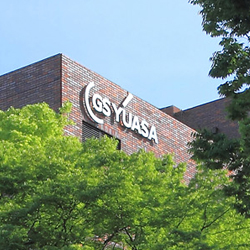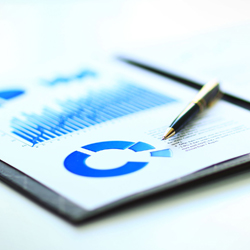Ensuring Social Responsibility within Our Supply Chain
We take action in collaboration with suppliers to solve various social and environmental issues.
Collaboration with Suppliers
Building Better Partnerships
The GS Yuasa Group believes that all suppliers are important business partners. For this reason, we work with our suppliers on matters of quality control, health and safety, as well as education and guidance on compliance and overall CSR with the aim of strengthening our business foundation together with those suppliers.
We hold annual procurement policy briefings to raise understanding of our management policies, annual business policies, and basic procurement policy and to deepen mutual understanding and trust. We also award suppliers that have achieved excellent results in initiatives (CSR, safety, quality, delivery date, price, etc.) that we expect from our suppliers.
In fiscal 2025, we are undertaking procurement activities with a focus on two priority initiatives: building robust supply chains by reinforcing QCD (quality, cost, and delivery) and conducting sustainable procurement that meets the needs of society and stakeholders (responses to the SDGs, carbon neutrality, and cyber security).
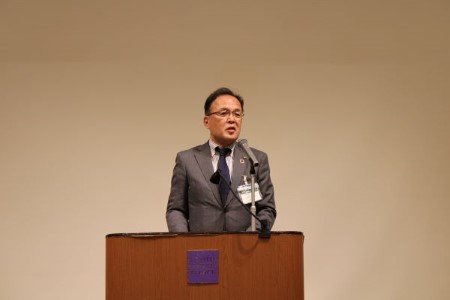
Procurement policy briefing for suppliers
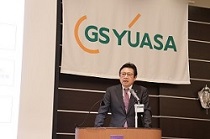
Procurement policy briefing for suppliers
Basic Procurement Policy
We will work to create better partnerships with our suppliers, and contribute to people, society, and the global environment through sustainable procurement.
Responsible Procurement
Promotion of Responsible Procurement
The GS Yuasa Group advances materials procurement based on awareness of such international social issues as forced labor, child labor and environmental destruction. Along with quality, performance, pricing, delivery deadlines and other conventional supply demands, it is also vital to base procurement in CSR championing human rights, working conditions and the global environment. Toward that end, the Group does not simply tackle CSR on its own, but also, in cooperation with suppliers, promotes responsible procurement in response to social issues.
By tackling CSR, we believe we can raise the mutual corporate value of our Group and suppliers and realize a mutually prosperous supply chain overall.
In fiscal 2018, the GS Yuasa Group published Responsible Procurement Guidelines and issued it to suppliers to better clarify the practices of responsible procurement. The Guidelines seek to support a sustainable society through the partnership linking the Group to all suppliers. We distribute the Guidelines in seven different languages so that overseas suppliers can also understand them. By ensuring that all parties in global supply chains are fully aware of the Guidelines, we work to raise suppliers’ awareness regarding the importance of responses to CSR issues in supply chains (such as human rights issues of workers). The key goal is to reduce business risks capable of negatively impacting improvements in mutual performance and sustainability, with supplier briefings held to raise awareness of the spirit and key points of these new parameters throughout the supply chain. In addition, we are working to further deepen our awareness of the results of Responsible procurement by obtaining the consent of suppliers to cooperate with the content of these guidelines. When commencing transactions with new suppliers, we select suppliers that consent to the Guidelines and conclude contracts that include provisions on compliance with social standards (environmental preservation, compliance, respect for human rights, fair trade, exclusion of antisocial forces, and so on).
Overview of requirements for suppliers
| Classification | Summary of requirements |
|---|---|
| Labor |
|
| Health and Safety |
|
| Environment |
|
| Corporate Ethics |
|
| Product Safety |
|
Responsible Procurement Implementation Structure

Refer here for information on the Sustainability Promotion Framework
Responsible Procurement Guidelines
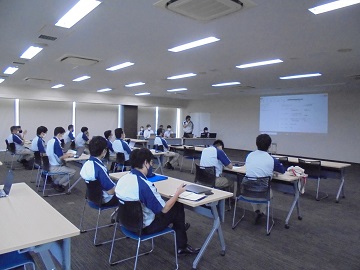
Education on responsible procurement for procurement personnel
Training on Responsible Procurement
The GS Yuasa Group holds seminars on its Responsible Procurement Guidelines for suppliers toward the fulfillment of its social responsibilities throughout the supply chain. These seminars are designed to promote understanding of the Group’s initiatives policies on respect for human rights, health and safety, environmental protection, corporate ethics, and product safety, as well as to share key CSR issues throughout the supply chain while requesting appropriate responses from suppliers.
We additionally educate the GS Yuasa Group’s procurement personnel to enable them to appropriately implement responsible procurement, while nurturing a greater understanding of the Responsible Procurement Guidelines and inform them of the importance of preventing CSR risks throughout the supply chain with the potential to affect business continuity.
The Group will continue to actively promote training on responsible procurement both for the Group and its suppliers toward the achievement of sustainable society in the supply chain.
Responsible Procurement Survey of Suppliers
In order to realize a sustainable supply chain, the Group periodically surveys its major suppliers concerning their compliance with the requirements in the Responsible Procurement Guidelines. In this survey, suppliers evaluate their own CSR response status using questionnaire type of surveys, and the Group identifies CSR issues in the supply chain based on the results of the self-evaluations and implements a process to resolve these issues. We are working in collaboration with our suppliers to resolve the CSR issues in the supply chain in order to strengthen our business foundation.
Overview of supplier CSR survey items (Fiscal 2024)
Please scroll sideways
| Classification | Number of questions | Example question items |
|---|---|---|
| Labor | 17 | Forced labor, child labor, working hours, wages, inhumane behavior, discrimination, etc. |
| Health and Safety | 5 | Occupational safety management, preparedness for emergency situations, industrial health, physically heavy work, machinery and equipment, etc. |
| Environment | 6 | Environmental permits, pollution control, hazardous substances、waste, atmospheric emissions, wastewater, etc. |
| Corporate Ethics | 6 | Legal compliance, bribery, intellectual property, unfair trade, internal whistleblower systems, information security, etc. |
| Product Safety | 1 | Ensuring product safety |
| Total | 35 |
Results of Supplier CSR Survey (Fiscal 2024)
Please scroll sideways
| Items | Suppliers of domestic business sites | Suppliers of overseas business sites | Total |
|---|---|---|---|
| Number of companies surveyed | 260 | 126 | 386 |
| Number of companies targeted for improvement | 26 | 12 | 38 |
| Number of issues | 33 | 17 | 50 |
Status of Issue Improvement Based on the Supplier CSR Survey (Fiscal 2023)
| Classification | Number of issues | Number of improvements completed |
|---|---|---|
| Labor | 7 | 7 |
| Health and Safety | 33 | 33 |
| Environment | 3 | 3 |
| Corporate Ethics | 4 | 4 |
| Product Safety | 0 | 0 |
| Total | 47 | 47 |
Specific Initiatives to Promote Responsible Procurement
The Group is promoting diverse initiatives in collaboration with suppliers for the realization of a sustainable supply chain.
Examples of specific initiatives to promote responsible procurement
- Ensuring Quality and Health/Safety
- Green Procurement
- Responsible Mineral Procurement
- Initiatives for Carbon Neutrality and Reduction in Water Consumption
- Encouraging the Use of Recycled Resources
1. Ensuring Quality and Safety
To promote activities that raise quality and enhance health and safety, including for suppliers who supply parts and raw materials, the GS Yuasa Group provides guidance on quality reflecting the needs of our suppliers as well as health and safety patrols, if required. In programs that raise quality, we share with suppliers the target values and the results of quality defect analysis of products supplied to the Group and work to improve the quality of these items along with them. In addition, we support quality improvement activities of suppliers by holding seminars on quality and conducting plant tours for suppliers.
Further, we consider occurrence of occupational accidents on the part of suppliers as occupational accidents of the Group, and are committed to working with our suppliers to adopt measures based on safety-first. Health and safety patrols that perform safety inspections at suppliers plants point out potential hazards and propose measures to mitigate those hazards depending on the scale of the risks. We provide support for suppliers to identify workplace risks that pose hazards to workers and take appropriate action including monitoring of hazards and formulation of safe working procedures. Since fiscal 2019, we have been holding experience-based training, so suppliers personnel can experience first-hand and gain an understanding of the hazards in their workplaces.
Through these activities, we are supporting the creation of strong partnerships in the supply chain and measures to ensure the quality of products used by customers as well as the health and safety of our suppliers.
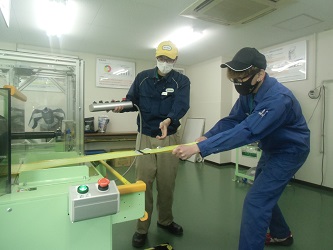
Experience-based training
2. Green Procurement
The GS Yuasa Group companies in Japan makes the following requests of suppliers based on our Green Procurement Criteria.
Requirements for Suppliers
- Operation of an environmental management system
- Examination of chemical substances contained in items being supplied
- Checking the legality of cutting down certain trees (logging)
- Programs to identify and reduce CO2 emissions
For 2. above, we ask our suppliers to examine substances using Chemical Substance Management Guidelines, which comply with international laws and regulations including EU directives (REACH, RoHS, etc.), and to test individual chemical substances as specified by customer needs.
GS Yuasa evaluates the appropriateness of stipulations to suppliers concerning green procurement by checking and auditing the status of their response. When selecting new suppliers, we apply supplier selection criteria relating to environmental management. In fiscal 2024, all suppliers that entered into new agreements satisfied those criteria. Further, for existing suppliers, we employ a supplier survey process related to responsible procurement to confirm the status of their response to environmental conservation.
By prioritizing trade with those suppliers that supply goods that conform to green procurement standards, we are reducing the environmental burden, including the burden within the supply chain.
Suppliers selection criteria relating to environmental management
- Acquired third-party certification of environmental management systems
- Has not acquired third-party certification of environmental management systems but has submitted a plan for acquisition
3. Responsible Mineral Procurement
The GS Yuasa Group believes that addressing social issues (armed conflict, human rights violations, etc.) that may arise during the extraction, transport, and trading of minerals used in our products is crucial in the global mineral supply chain. In our promotion of responsible mineral procurement, we have established a policy that sets out our basic approach to responsible mineral procurement based on the OECD Due Diligence Guidance for Responsible Supply Chains of Minerals from Conflict-Affected and High-Risk Areas, an international framework for ensuring the responsible procurement of minerals throughout the supply chain. We also further efforts to ensure transparency in the mineral procurement process making active use of the practical guidance developed by the RMI,*1 an international initiative to promote responsible mineral procurement, and use RMI survey form templates (CMRT*2 and EMRT*3) in gaining an understanding of procurement risks in the minerals supply chain. The GS Yuasa Group are engaging with risk management in mineral procurement based on our Responsible Mineral Procurement Policy to ensure that we can collaborate with suppliers and various other stakeholders to undertake activities without being complicit in armed conflict or human rights abuses.
1RMI:Responsible Minerals Initiative
2CMRT:Conflict Minerals Reporting Template
3EMRT:Extended Minerals Reporting Template
GS YUASA Responsible Mineral Procurement Policy
GS YUASA shall, recognizing the risks of significant adverse impacts which may arise in the supply chain of the minerals used in the products, parts, and materials handled by our company, promote responsible mineral procurement while respecting the internationally recognized framework through the following initiatives, to fulfill the responsibilities to respect human rights and avoid contributing to conflicts.
- GS YUASA will investigate whether its group companies or their suppliers procure or use the minerals that may contribute to human rights violations or armed conflicts.
- GS YUASA will, if it was revealed that anyone of its group companies or their suppliers has procured or used minerals that have a high risk of contributing to human rights violations or armed conflicts, work on activities to avoid the procurement or use of such minerals, in collaboration with related companies.
Refer here for the full text of the policy on responsible mineral procurement.
Risk Management Process in Responsible Mineral Procurement
Please scroll sideways
| No. | Process | Process Overview | |
|---|---|---|---|
| 1 | Creation of risk management systems |
|
|
| 2 | Identification of risks in supply chains |
|
|
| 3 | Proposal of strategies and implementation of countermeasures to address identified risks | If smelters that lack RMI certification*5 are identified | Request corrective measures by suppliers |
| If indications concerning smelters of concern are received from customer | Confirm the indicated matters and request appropriate responses by suppliers (re-examination of smelters, etc.) | ||
| 4 | Public disclosure of the status of measures | Publicly disclose the status of risk management relating to responsible mineral procurement by the Group each year | |
4Tin, tantalum, tungsten, and gold
5Smelters that are not in compliance with the due diligence standards established by the Responsible Minerals Initiative (RMI) or that have not received RMI certification
Status of Risk Management Relating to Responsible Mineral Procurement
In fiscal 2024, we surveyed 161 suppliers on responsible mineral procurement. Survey progress management is performed on a monthly basis, and we achieved a 100% response rate. If any deficiencies in the responses are identified, we request a secondary survey to ensure the reliability of the data. Furthermore, if any smelters that lack RMI certification are identified, we request corrective action by the supplier.
4. Initiatives for Carbon Neutrality and Reduction in Water Consumption
The GS Yuasa Group is working to reduce environmental impact not just from its own business activities, but throughout the entire supply chain to address environmental issues including climate change and resource depletion.
To address carbon neutral and water resource issues in particular, we request that suppliers cooperate with our measures for achieving CO2 emissions and water consumption reduction targets (down by 1% or more compared with the previous fiscal year) in conjunction with production of products supplied to our Group.
The Group is working to conserve natural environments in all its business activities by efficiently using resources including energy and water throughout the entire supply chain.
5. Encouraging the Use of Recycled Resources
The GS Yuasa Group procures recycled resources using a system that recycles our own used products. To encourage the use of recycled resources, we participate in the Lead Acid Storage Battery Recycle Association, an industry group that promotes the cyclic use of automotive lead-acid batteries, and appropriately conduct stable recycling of used products throughout the supply chain in collaboration with other companies in the industry.
By encouraging recycling of our used products, the Group is contributing to the development of a recycling-oriented society and ensuring stable procurement of key materials.
TOPICS
Partnership Building Declaration Announced
GS Yuasa International Ltd. announced its Partnership Building Declaration, by which it commits to coexistence and co-prosperity throughout supply chains and to achieving fair trading prices. The declaration was formulated to support the objectives of the Council for the Promotion of Building Partnerships For the Future, which comprises economic organizations, the Ministry of Economy, Trade and Industry, and other parties with the aim of increasing the value of entire supply chains and promoting coexistence and coprosperity of large and small companies. Going forward, the Group will continue to promote fair and sound business activities within it supply chains in accordance with the declaration.
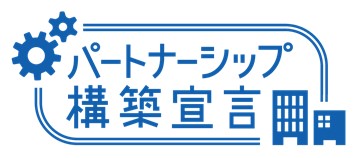
The files are in Adobe Acrobat Format. To view them you will need to download the Acrobat Reader.
Adobe Reader Download
